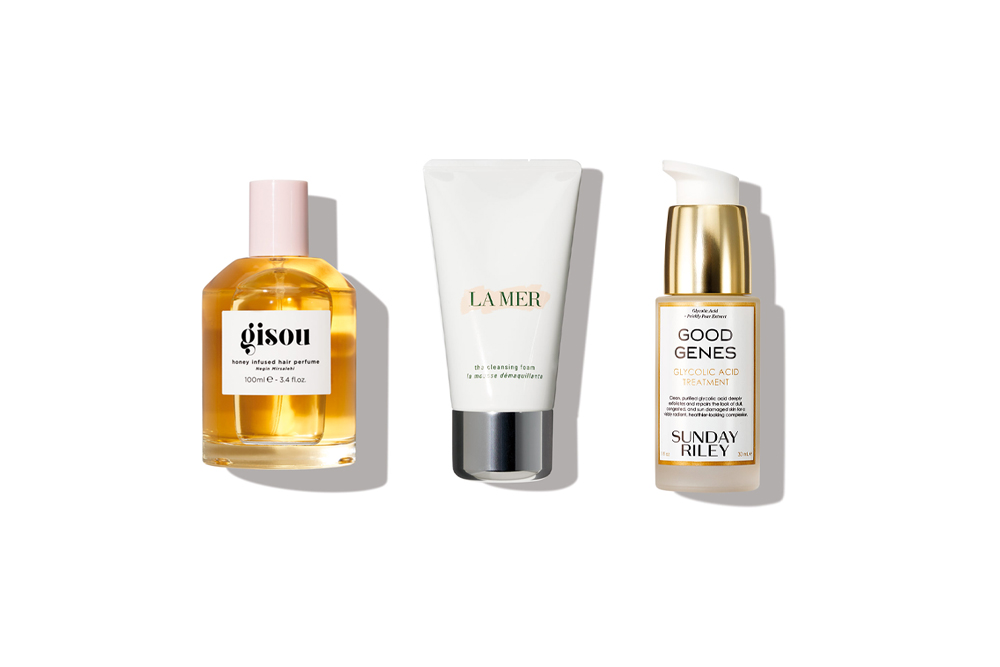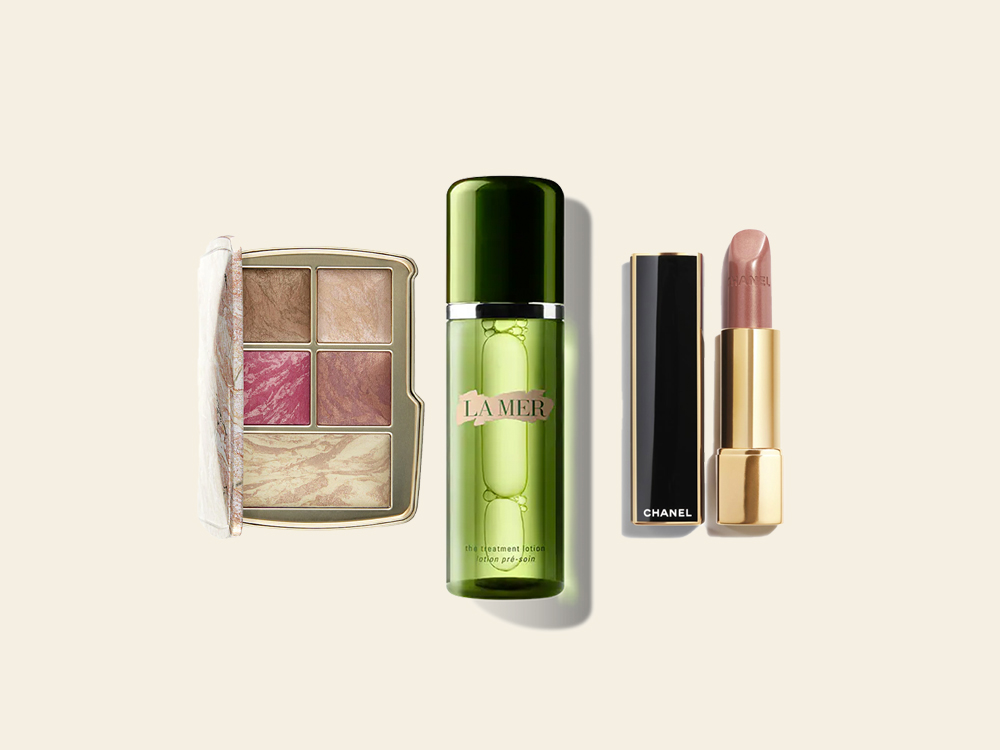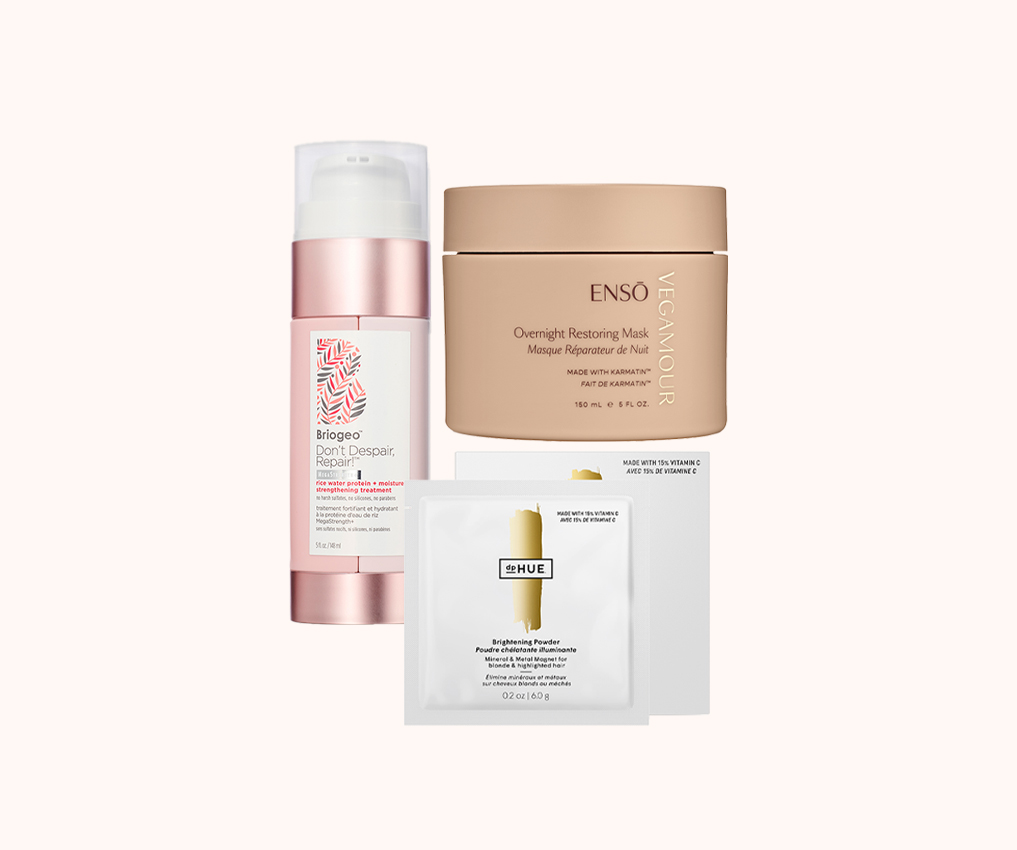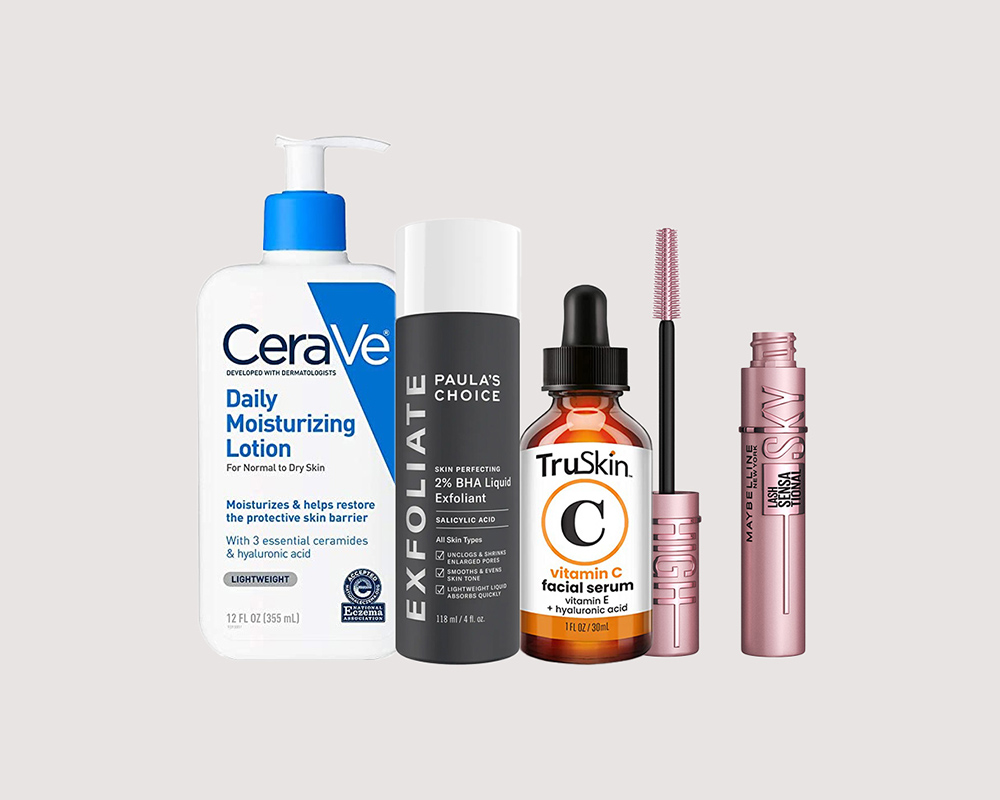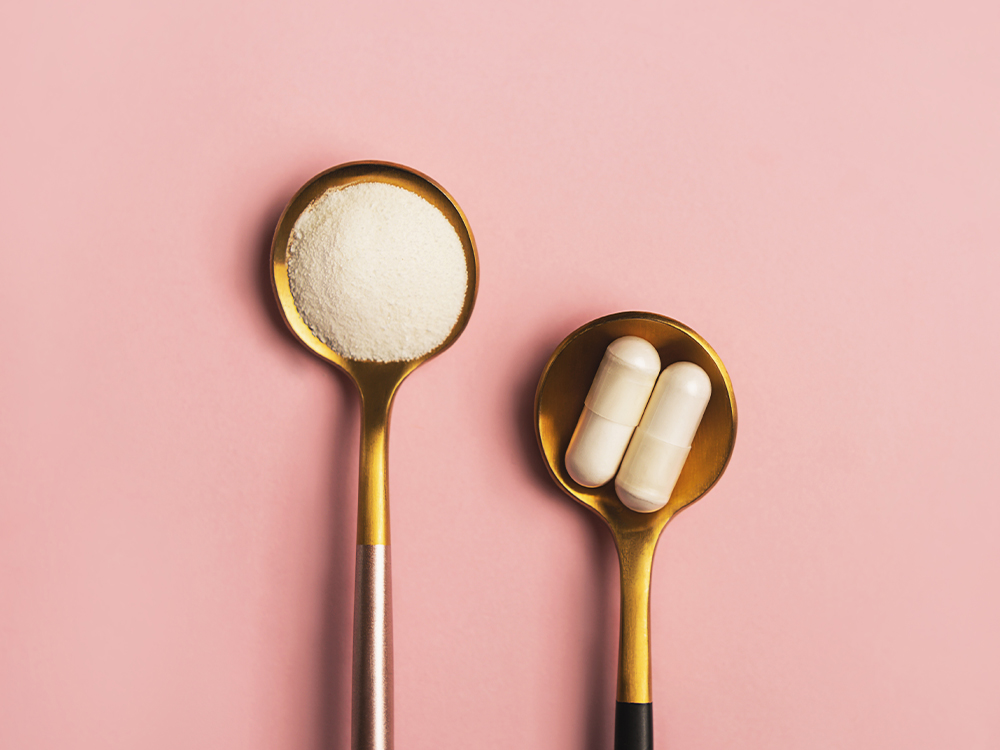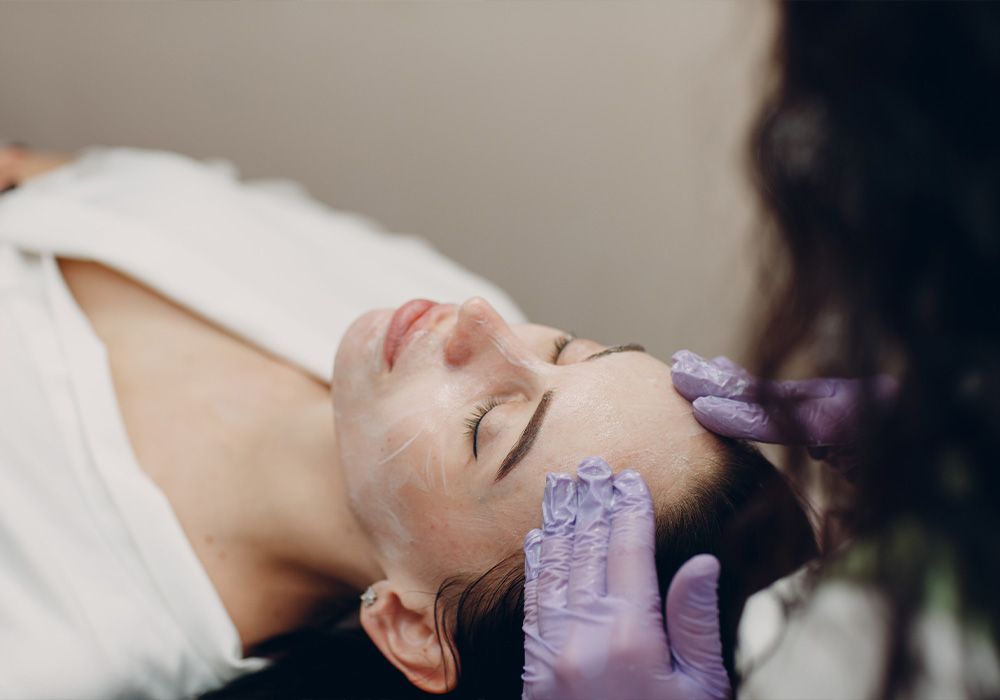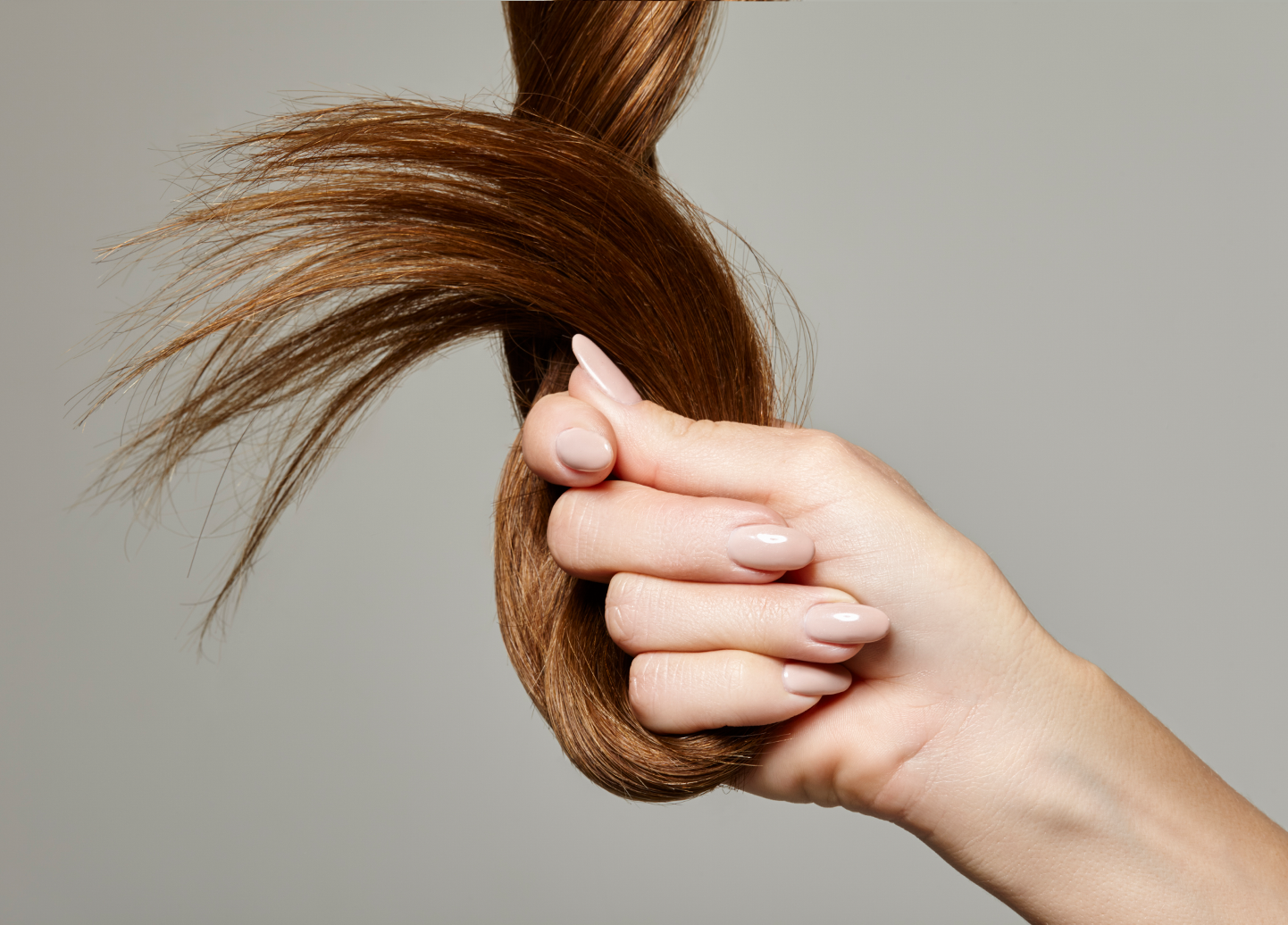Stress, both the constant daily grind and major life-changing events, takes a toll on our faces and bodies. Heidi Hanna, PhD, executive director of the American Institute of Stress, says that despite our increased physical and financial security compared to past generations, our nervous systems have become hypersensitive due to overstimulation and technological demands. Enter “stress face” and all the ways being “stressed out” can manifest on our skin, hair, nails and smiles.
“Most people today are more physically and financially secure than in generations past,” says Dr. Hanna, “but we have become bombarded with overstimulating noise, to the point that our nervous systems have become much more sensitive. At the same time, technological advancements have put greater demands on our time and energy. Because we aren’t prioritizing our personal recharge and stress-mastery techniques, the consequences are greater than ever.”
Featured Experts
- Heidi Hanna, PhD, is the executive director of the American Institute of Stress
- Doris Day, MD is a dermatologist based in New York City
- Dr. Janice Lima-Maribona is dermatologist based in Miami
- Julie Russak, MD is a dermatologist based in New York City
- Irene Grafman, DDS is a cosmetic dentist based in New York City
- Jennifer Hanway is a holistic nutritionist based in New York City
- Haemin Sunim is a Zen Buddhist teacher and bestselling author based in South Korea
What Happens When We Get Stressed?
When stress hits, our bodies release hormones that increase heart rate and muscle tension, preparing us to face perceived threats. Unfortunately, in today’s world, this physiological response often lingers, leading to prolonged stress levels that manifest physically.
“Stress hormones are designed to help you survive a life-threatening situation,” says New York dermatologist Doris Day, MD. “Your blood pressure and energy levels go up and your body turns off nonessential functions, like digestion and reproduction. Because your body is on high alert, you think more clearly and learning and memory are enhanced. That’s very useful if you’re dealing with a true life-threatening situation, but in today’s world, we often react to minor situations with that same level of stress response.”
The Way Stress Shows on Our Skin
“Constant worry can trigger the same stress response as a major threat—the release of adrenaline and other stress hormones—which over time can negatively impact our skin,” says Dr. Day. “Studies show that long-term stress suppresses the immune system in all organs, including our skin, making us more susceptible to infections and even disrupting menstrual cycles, which can lead to hormonal breakouts.”
Miami dermatologist Dr. Janice Lima Maribona says cortisol, the primary stress hormone, is the main culprit. “Normally, cortisol levels oscillate by our internal circadian clock, with peak levels in the morning and low points happening around midnight. When we’re stressed, our cortisol levels are disrupted, which can cause acne and exacerbate conditions like eczema, psoriasis, rosacea and atopic dermatitis.”
“Skin is an external barometer of what is happening internally and we often see dull skin at times of fatigue and stress,” adds New York dermatologist Julie Russak, MD. “Consistently elevated levels of cortisol is catabolic to the body, meaning we are breaking down and failing to repair tissues, which leads to decreased collagen and elastin production. With chronic stress we also ‘tire out’ our adrenal glands and deplete their ability to react properly to stress.”
How Stress Impacts Hair, Nails and Smiles
Stress doesn’t discriminate—it affects everyone, but it can hit women particularly hard due to their tendency to prioritize caretaking over self-care. The release of stress hormones, combined with elevated estrogen and oxytocin levels in women, can lead to a desire to nurture others while neglecting personal well-being. Dr. Hanna says that when we put self-care on the back burner and hear well-meant advice like “hit the gym” or “fix the problem,” it can stress us even more. This neglect can exacerbate the physical effects of stress, causing issues like hair loss, weakened nails and teeth grinding.
“Our skin, hair and nails are of the lowest importance to our survival,” says Dr. Russak. “So, at times of stress, valuable vitamins and minerals are prioritized for our body’s vital metabolic processes and the production of stress hormones.”
Hair Loss
Prolonged periods of high stress can lead to a disturbance of the hair cycle. Stress triggers telogen effluvium, a condition wherein a surge of hair follicles enters the resting phase, leading to hair loss. Hair strands may shed excessively or become tangled in hairbrushes. Additionally, stress-induced reactions in the body can provoke alopecia areata, where the immune system targets hair follicles, resulting in further hair loss. “A patient of mine was losing hair after a close family member was diagnosed with cancer,” says Dr. Lima-Maribona. “It was not either of these two issues, but I learned she was picking at her scalp. The urge to pull hair out of the scalp is called trichotillomania and for that, I recommended she also seek psychiatric help.”
Nails
Healthy nails require vitamins and minerals like protein, biotin, silica, magnesium, zinc and iron. “Stress makes it harder for our bodies to absorb the nutrients they need, so nail ridging, pitting and shredding are all side effects,” says Dr. Lima-Maribona. “People coping with stress tend to abuse their nails with repetitive rubbing or biting, which also causes more damage to the nail bed.”
Teeth
One way our body deals with stress can start in our mouths. “Stress can cause us to clench and grind our teeth, resulting in joint and muscle pain called temporomandibular disorders, or TMD,” says New York cosmetic dentist Irene Grafman, DDS. “This results in headaches, neck and back aches and worn-down, unattractive-looking teeth. Over time, chronic TMD can also create more than just aesthetic issues. As teeth are ground down, it can result in the tongue or oral tissue collapsing and closing off the body’s airway, leading to problems like sleep apnea.”
Can Stress Make You Sick?
Chronic stress not only affects our appearance but also our overall health. Stress can lead to overeating and poor food choices, disrupting metabolic processes and leading to weight gain, especially visceral fat around the organs. “We are more likely to overeat at times of stress, reaching for foods high in carbohydrates and sugars that release dopamine, a neurotransmitter that makes us feel good. And even just one night of less than five hours of sleep can lead to the consumption of an extra 300 calories,” says holistic nutritionist Jennifer Hanway. “Studies have shown that women with high cortisol levels tend to store more visceral fat, the ‘deep’ fat stored further underneath the skin and around the organs linked to metabolic diseases and increased inflammation, than those with lower levels.”
How to Cope with Stress
The first step in combating stress is to prioritize self-care. Whether it’s taking deep breaths or going for a walk, carving out time for ourselves is essential. Haemin Sunim, Buddhist teacher and author of the mindfulness guide The Things You Can See Only When You Slow Down says unwinding shouldn’t stress us out more. “The most important thing is to start with the intention to care for yourself,” he says.
“Once you have made that intention, assign a specific amount of time each day to taking care of yourself. If you only have a few seconds, take a deep breath and smile. If you only have 10 minutes, walk around and stretch. With half an hour, you can listen to your favorite songs, talk with a loved one or just relax.”
Changing our mindset is crucial for managing stress. Dr. Hanna recommends techniques like the “Breathe, Feel and Focus” method to rebalance the nervous system. Additionally, incorporating electrotherapy can help calm the brain and body. “It uses a gentle electrical current to stimulate specific groups of nerve cells in the brain. This nudges the nervous system into a calmer state.”
Hanway, along with Dr. Russak, recommends biomarker testing to understand how stress affects the body at a cellular level. “We understand the skin-gut connection,” adds Dr. Russak, “and we know food sensitivities can be the culprits of conditions such as eczema, skin allergies and chronic inflammation. Our wellness analysis reveals important information about what is going on in the body. This analysis also supports healthy gene expression to protect precious proteins, including collagen and elastin.”
Ways to Treat Yourself
Although getting stressed from time to time may be inevitable, seeking professional help can mitigate its effects. Dermatologists like Dr. Russak offer procedures like collagen induction therapy to regenerate skin and hair. “For example, we pair collagen induction such as radio-frequency microneedling with platelet-rich plasma injections into the scalp to help trigger hair regrowth,” says Dr. Russak.
Dr. Lima-Maribona incorporates lasers, light therapies, facials and peels and may recommend medications like, “benzoyl peroxide, tretinoin, tazarotene, clindamycin, Soolantra and topical dapsone as needed for rosacea and acne.” She also advises taking ashwagandha to normalize hormone levels. “It decreases cortisol levels, which in turn decreases stress,” she says. “For weakened nails, I advise taking a multi-vitamin with biotin and a nail hardener that contains keratin-like properties.”
Unwinding the Grind
To address effects like teeth grinding, treatments like Botox injections or realigning teeth with bonding can provide a noninvasive relief. For stress-related grinding, Dr. Grafman prefers to restore bite alignment conservatively. “Bonding allows for the adjustment of tooth height without the need for extensive removal of healthy tooth structure,” she explains.
As we navigate the complexities of life, it’s crucial to remember that our bodies often reflect the worries we carry, manifesting in subtle ways. Yet, we can take proactive measures so these effects don’t stress us out more. Reclaiming control over our emotional well-being can help manifest a glow that shines from the inside out.

